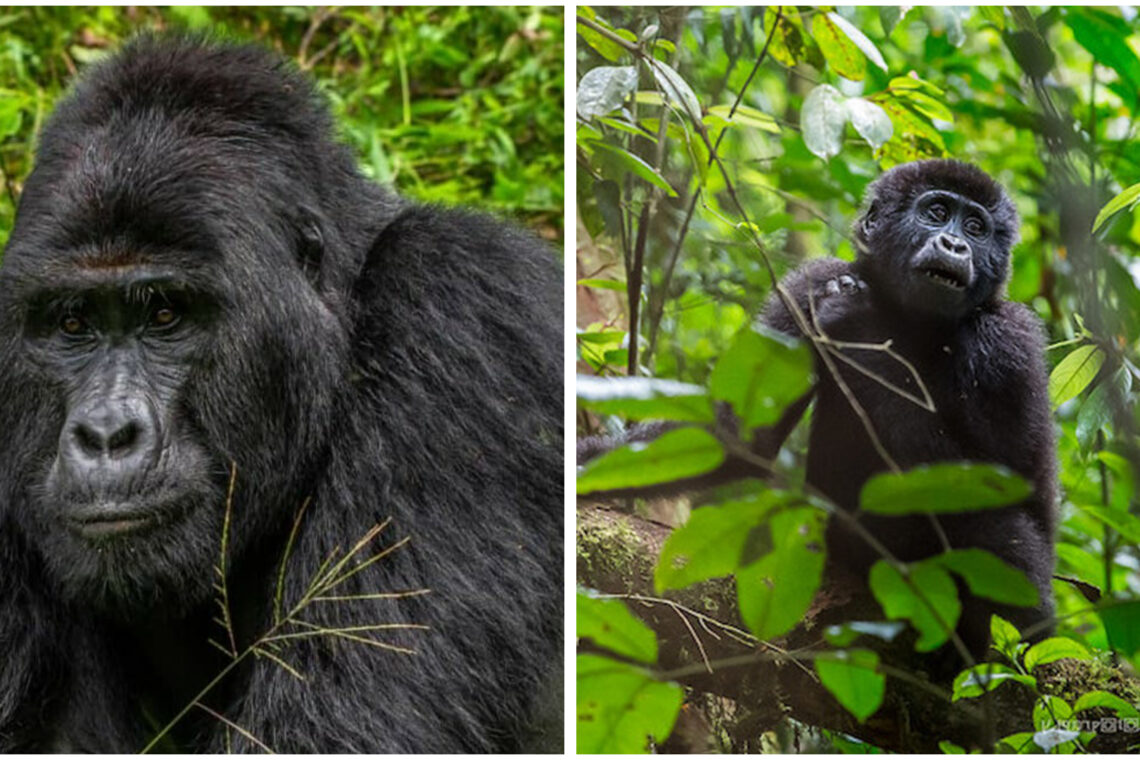
The tragic and senseless act of poaching continues to plague the animal kingdom, leaving behind devastation and heartache. Recently, the world was shaken by the news of Rafiki, a cherished silverback gorilla, who was brutally killed by poachers in Uganda’s Bwindi Impenetrable National Park. This incident highlights the ongoing struggle against wildlife crime and the impact it has on endangered species.
Rafiki was not just any gorilla; he was a prominent figure among his kind, leading a group of 15 silverbacks that had captivated the hearts of many visitors to the park. His gentle demeanor and engaging presence made him a favorite among tourists, who traveled from all corners of the globe to witness the beauty of these magnificent creatures in their natural habitat. The silverback gorillas are an endangered species, with estimates suggesting there are only about 1,000 individuals left in the wild. Each life lost represents not only a tragic event but also a significant blow to the survival of the species as a whole.
The circumstances surrounding Rafiki’s death are both shocking and heartbreaking. On June 1, he was reported missing, raising alarms among the park rangers and conservationists. A search ensued, and eventually, Rafiki’s lifeless body was discovered, bearing fatal stab wounds to his internal organs. The subsequent investigation revealed a disturbing narrative involving a group of poachers who had trespassed into the protected area. Among them was Byamukama Felix, a local villager who was apprehended with hunting equipment in his possession. In a statement to authorities, he claimed that the encounter with Rafiki and his group had turned confrontational, leading him to fatally stab the gorilla in what he described as an act of self-defense.
This tragic incident has led to the arrest of four individuals who now face serious legal consequences. The penalties for their actions could include a lengthy prison sentence or exorbitant fines, reflecting the severity with which wildlife crimes are treated under Ugandan law. However, no punishment can truly compensate for the loss of Rafiki or the disruption his death has caused to his group.
The implications of Rafiki’s death extend beyond the immediate loss of a beloved animal. His leadership was crucial for the stability of his group. As highlighted by Bashir Hangi from the Uganda Wildlife Authority, the loss of a dominant silverback can create chaos within the social structure of gorilla groups. Without strong leadership, the remaining members face uncertainty, and the possibility of the group disintegrating becomes a real concern. In the wild, rival silverbacks may attempt to take advantage of this instability, leading to further violence and upheaval.
This situation is particularly concerning not just for the gorillas, but for the park itself. The Uganda Wildlife Authority relies heavily on tourism as a source of revenue, with many visitors drawn to Bwindi Impenetrable National Park specifically to see the silverback gorillas. Rafiki’s fame and popularity played a significant role in attracting tourists, and his untimely death could deter future visitors. The potential decline in tourism revenue would have dire consequences for ongoing conservation efforts, threatening the protection of not only gorillas but also the rich biodiversity of the park.
We have arrested four people over the death of Rafiki, the Silverback of Nkuringo Gorilla group in Bwindi Impenetrable National Park. They will be prosecuted in the courts of law. See statement below; pic.twitter.com/Hf17vfsmL3
— Uganda Wildlife Authority (@ugwildlife) June 12, 2020
The poaching crisis is a multifaceted issue, driven by various factors including poverty, lack of education, and the demand for bushmeat and animal parts in local and international markets. In many cases, poachers are desperate individuals seeking a means of survival, but their actions have devastating repercussions for wildlife populations and the ecosystems they inhabit. Conservation organizations are working tirelessly to combat these challenges through education, community engagement, and anti-poaching initiatives, but the road ahead remains long and arduous.
Efforts to protect endangered species like the silverback gorilla are more crucial than ever. Programs aimed at empowering local communities through sustainable alternatives can help mitigate the pressures of poaching. By providing education and resources, conservationists can foster a sense of stewardship for the environment among local populations, encouraging them to value and protect their natural heritage rather than exploit it.
Rafiki’s legacy should serve as a catalyst for change, prompting a renewed commitment to wildlife conservation. The loss of such a remarkable creature reminds us of the fragility of our planet’s ecosystems and the urgent need to protect them. Each silverback gorilla that falls victim to poaching diminishes our collective future and threatens the delicate balance of life in the wild.
In the wake of Rafiki’s tragic death, it is essential for individuals and organizations worldwide to come together to advocate for stronger protections for endangered species. This includes supporting wildlife protection laws, promoting ethical tourism practices, and raising awareness about the importance of biodiversity. The fight against poaching requires a united front, combining the efforts of governments, NGOs, and local communities to create a sustainable future for wildlife.
The story of Rafiki is not just a tale of loss; it is a call to action. We must strive to ensure that the lives of these majestic animals are valued and protected. Through education, advocacy, and sustainable practices, we can work toward a world where future generations will have the opportunity to experience the wonder of silverback gorillas in their natural habitats. Rafiki’s spirit will live on as a reminder of the importance of conservation and the enduring bond between humans and the animal kingdom.